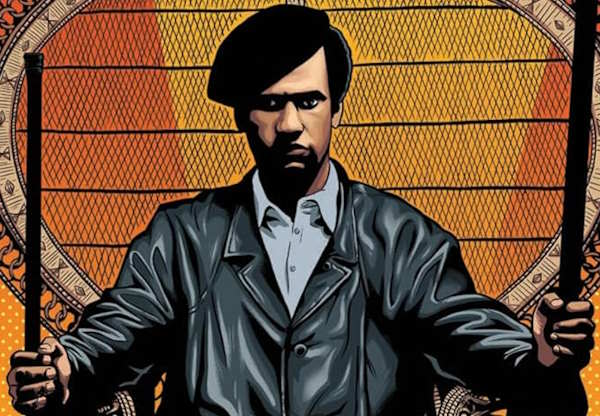On Thursday, August 30th, famed music industry executive Chris Lighty was found dead in his Bronx apartment from an allegedly self-inflicted gunshot wound to the head. A nine millimeter pistol was found lying next to his body. At the time of his death, Chris reportedly owed five million dollars to the IRS. Last year, his wife filed for divorce. Many believe such factors likely drove him to suicide. Veronica Lighty vehemently refutes such claims. In a brief interview with the New York Daily News, she states that “I had filed for divorce last year, but retracted it. That was my gift to him (for Father’s Day).” She then gave powerful testimony to his character as both a father and husband: “My husband was too smart of a man. He was a genius. No smart man is going to leave his children for fighting with his wife. This makes no sense.”
Judging by the reputation and legacy of her husband, I’d be inclined to take Ms. Lighty at her word. I barely knew anything about the man until early last year, when I had the pleasure of reading The Big Payback: The History of the Business of Hip-Hop by Dan Charnas. The eighth chapter, “An American Dream,” contains a plethora of information about Lighty, including details about his life before entering the music industry. Up until that point, Chris Lighty was just a name in the liner notes of some of my favorite albums released during the 1990’s. Dan Charnas showed me that he was a real person who made a considerable impact on the world.
Lighty, along with his five siblings (three brothers and two sisters)was raised by a single mother in the Castle Hill section of the South Bronx. After the breakup of his mother’s second marriage, his mom relocated to Maryland. Young Chris opted to stay behind and attend the Samuel Gompers Career and Technical Education High School. He roomed in a nearby housing project with his classmate Darryl, and the two began carrying record crates for DJ Red Alert. It was around this time that Chris became adept at leading a double life. It was similar to the dichotomy that exists between superheroes and their secret identities.
Chris and Daryl ran the streets. Their antics prompted Red Alert to christen them “The Violators.” The moniker proved apt, as the two seemed to court nothing but trouble at clubs and parties. Bronx River ruffians Chris Ali, Big Pop, and “Hands” soon joined them. Now a full-fledged crew, The Violators took on any and all challengers. Their exploits became the stuff of street legend. Violent run-ins with Brooklyn rivals at legendary New York night spots like The Latin Quarters helped to cement that legend. Perhaps understanding the need for both steady employment and a respectable front, Chris maintained a job as an electrician for the Metro North railroad. His fellow Violators followed suit, supplementing their Metro Transit Authority paychecks with drug money.
However nefarious his extracurricular activities were, Chris was clearly meant for bigger and better things. Red Alert took note of his considerable potential, making him road manager for Boogie Down Productions and tour manager for A Tribe Called Quest. After seeing the Jungle Brothers receive a paltry 50 grand a piece from a 1.6 million dollar deal with Warner Brothers records, Chris realized which side of the record industry paid the best. While the artists got scraps and leftovers, labels executives saw the real money.
Still, Chris continued to living it up as a member of The Violators, enjoying all the perks that such a position entailed. However, a violent incident and an ultimatum from a colleague brought that side of his life to a close. One night, a birthday party was being held for Queen Latifah at the nightclub MK. Chris was slashed on the face by a Brooklyn rival while waiting to get inside. Chris chased the man into the venue and the ensuing squabble lead to a near riot. Latifah’s mother Rtia Owens was injured. This prompted Lyor Cohen gave Lighty a choice: Either continue to endure such nonsense as a member of the Violators, or move on to greener pastures as a record exec. Chris chose the latter, much to the chagrin of his fellow Violators.
In 1992, Lyor Cohen employed Lighty’s services in liquidating Rush management, which by then had outlived its usefulness. Around this time, Lighty formed Violator management and secured a production deal with Relativity. Not wanting to lose such a valuable asset to the competition, Cohen, who had begun working for Def Jam full time, gave Chris an offer he couldn’t refuse: work for Def Jam as Creative Chief. Lighty left his deal with Relativity in the rear view, opting to work for the most storied label in rap history.
I offer this brief run though of Lighty’s history only to set the stage for a fascinating anecdote that speaks to what I believe to have been his true character. It also appears in Dan Charnas’s book. It involves a confrontation that Lighty had with a rather fearsome CEO from another legendary rap label.
 When forming Death Row records, Suge Knight famously passed up the chance to sign Dr. Dre’s talented step brother Warren G. That oversight would prove costly, as Warren would become a hot commodity in his own right. He went on to sign with Def Jam/Violator. His 1994 debut Regulate…G Funk Era was a multi-platinum smash that saved Def Jam from extinction. Its lead single, “Regulate,” also appeared on Death Row’s Above the Rim Soundtrack, helping that compilation to sell millions of copies. Having seen the error of his ways, Suge badly wanted Warren under the Death Row banner. He figured that his penchant strong-arm/shakedown tactics would do the trick. He put Lyor Cohen in his crosshairs.
When forming Death Row records, Suge Knight famously passed up the chance to sign Dr. Dre’s talented step brother Warren G. That oversight would prove costly, as Warren would become a hot commodity in his own right. He went on to sign with Def Jam/Violator. His 1994 debut Regulate…G Funk Era was a multi-platinum smash that saved Def Jam from extinction. Its lead single, “Regulate,” also appeared on Death Row’s Above the Rim Soundtrack, helping that compilation to sell millions of copies. Having seen the error of his ways, Suge badly wanted Warren under the Death Row banner. He figured that his penchant strong-arm/shakedown tactics would do the trick. He put Lyor Cohen in his crosshairs.
Luckily for Lyor, Chris Lighty caught wind of Suge’s plans beforehand. He prepared the necessary counter measures. When accompanying Lyor to a De La Soul performance in Los Angeles, Chris enlisted the services of Lite, who was A Tribe Called Quests bodyguard at the time. While at the show, Suge and his entourage approached Lighty and Cohen. Lighty instructed Cohen to hang back while he handled the situation. Suge demanded to speak to Lyor. Lighty flat out refused. When Suge pressed the issue, Lighty gestured to Lite, who flashed a firearm. Lighty then addressed Suge. “We can both leave out the door, or one of us can leave in handcuffs.” Lighty then turned his attentions to Eric B (yes, that Eric B) who was a part of Suge’s entourage. “Eric, you should tell him about us, because you’ve to come back home (New York).” Suge and Eric left without incident.
However, Suge had one card left to play. In childishly vindictive fashion, he barred Death Row artist Nate Dogg from appearing in the video for “Regulate.” This caused quite a problem, as the song is basically a duet between Warren and Nate. Again, Chris wasn’t having it. On the day of the video shoot, he stopped at Interscope’s office building on Wilshire Boulevard. With Lite again by his side, Lighty made a Beeline to Suge’s office. Once there, he appealed to Suge’s sense of logic. Nate appearing in the video would prove lucrative for all involved. When Suge asked Chris why he was being so protective of his white benefactor, Chris replied “Fuck this ‘fuck the white man’ shit. I don’t give a fuck about ‘the white man,’ because you’re fucking up my money right now.” Needless to say, Nate appeared in the video.
After reading this story, I couldn’t help but feel a sense of pride. Like Chris, I am from the Bronx, albeit it from the opposite side of the borough. Back when Suge was considered the “most feared man in the record business,” a cat from the Bronx who was nicknamed “Baby Chris” called his bluff. Chris Lighty accomplished this without the usual theatrics. He didn’t have a massive crew everywhere he went. Chris knew a bully when he saw one, as he often played that role in his younger days. He ultimately retired that persona for something more respectable. However, he was still able to show that face when he needed to. He hardly strikes me as the kind of guy who would kill himself. Hopefully, the truth will one day come to light. For now, it’s best to focus on the good that Chris did. He also stood up to the bullies of the world, while being the kind of guy that people loved to work with. Once a Violator, always a Violator. Peaceful journey Chris Lighty, you were truly of a rare breed.
Follow Malice Intended on Twitter @ http://twitter.com/renaissance1977
Follow Us on Twitter @ http://twitter.com/planetill
Join Us on the Planet Ill Facebook Group for more discussion
Follow us on Networked Blog






